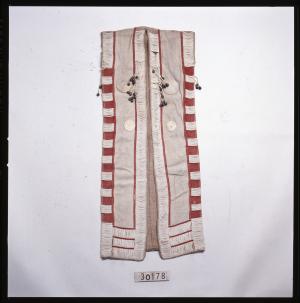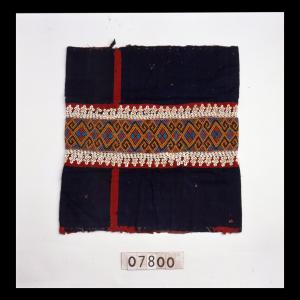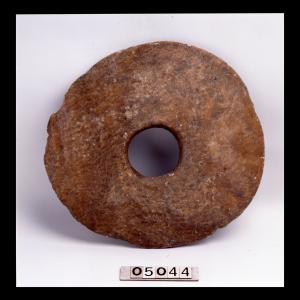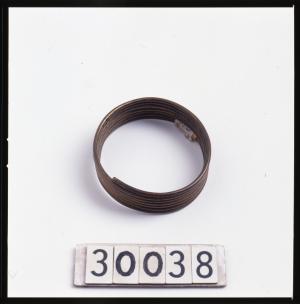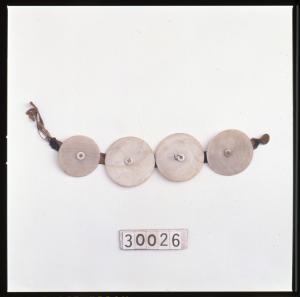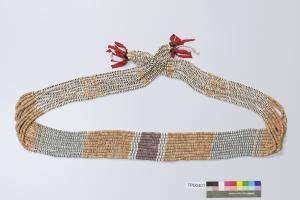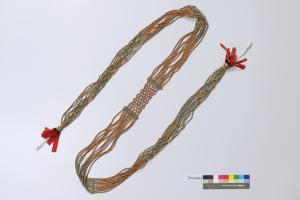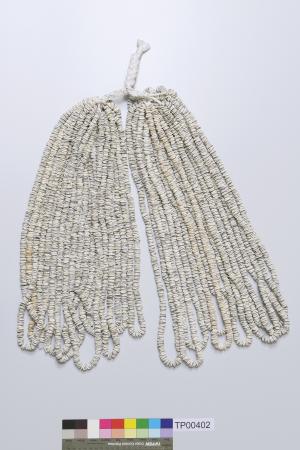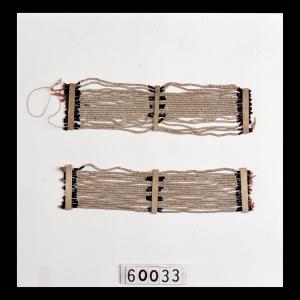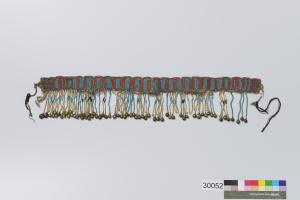Kwaio 人衡量貝珠錢 Kwaio Men Measuring Shell Money
詳細資料
所羅門群島 Malaita 島山區的 Kwaio 人以公認的基礎長度單位,一個 lousu'u,來衡量貝珠錢的長度。Kwaio 人堅持傳統、文化自主性,拒絕殖民者帶來的基督宗教、貨幣、「政府」(政治制度)。雖然 Kwaio 年輕人會外出打工賺錢,但他們透過範疇區分,限制「國家貨幣」進入傳統領域。在下聘、喪禮等重要生命儀禮場合,只可使用貝珠錢(kofu)。
The image shows a Kwaio man who uses a commonly accepted unit of length, a lousu’u, to measure a length of shell money. The Kwaio people in the mountains of Malaita in the Solomon Islands, held fast to tradition and cultural autonomy, and rejected the Christian religion, currencies, and “government” (political institutions) brought by the colonizers. Though young Kwaios take on part-time jobs to earn money, they establish boundaries and limit the introduction of the “state currency” into traditional spheres. For important ceremonial occasions such as bridewealth and funerals, the only currency accepted is shell money (kofu).
Akin, David. 1999. Cash and Shell Money in Kwaio, Solomon Islands. In Money and Modernity: State and Local Currencies in Melanesia, edited by David Akin & Joel Robbins, pp. 131-150. Pittsburgh: University of Pittsburgh Press.
Keesing, Roger M., 1992. Custom and Confrontation: The Kwaio Struggle for Cultural Autonomy. Chicago: University of Chicago Press.
Kwaio people

